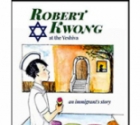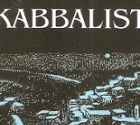-1366970558.jpg)
The trials and tribulations of getting that book published.
With so many uninspiring books out there, I assured myself it would be a cinch to get published. With that jaded outlook I began searching for a book publisher. First I contacted a literary agent whose name I had from an old college alumni magazine article which I had clipped and saved years ago in the hope of one day requiring his services. He helpfully referred me to Michael Larsen's How to Write a Book Proposal, which I read from cover to cover yet still had no idea what I need to do. So Ireread it and slowly began developing concepts like my subject hook, book hook and selling handle.
When, after months of preparation, my book proposal was ready I sent it off to a literary agent whose initial response indicated that I clearly knew what I was doing, providing an early boost of confidence. Strangely, she wrote in a quirky style using only lower-case letters, something I found ironic for a person making her living from other people's proper use of the written word. But she was looking for "narrative thread" and "defining principle."
Agents do the screening and dominate access to the large publishing houses in a symbiotic relationship. Big-name publishers’ websites tell prospective authors, “We only accept manuscripts submitted by an agent,” sometimes explaining this policy as being the result of the large volume of material they receive.
I started looking at smaller publishing houses, whose websites tended to be more welcoming, sometimes explaining to prospective authors what the publisher offers, and recognizing that publishers need authors. Some, however, can be standoffish or even downright nasty. One publishing house provides its contact details along with a message in bold capital letters telling potential authors not to call and adding: "IF YOU DO NOT HEAR BACK ON YOUR QUERY, IT MEANS THAT WE ARE NOT INTERESTED IN SEEING YOUR MANUSCRIPT."
Most publishers do reply to initial queries, although the range is from instantaneous (“We'll be happy to consider your proposal”) to weeks or even months, when, out of the blue, a reply may appear, sometimes mentioning a huge backlog as a way of apologizing for such a slow response to a simple query email offering to submit a proposal. The nail-biting comes after submitting a proposal. Now they want a table of contents and a sample chapter or two, as well as a look at potential markets, competitive books, author background and experience. Some responses come as quickly as within a few days, while others take weeks and even months, during which the proposal is considered, discussed and debated by acquisition editors and evaluation committees. Various writers’ websites counsel patience and persistence. “If your manuscript doesn't find a home right away, keep trying,” Writing-World.com advises. “Don't take rejection personally; just move on to the next publisher on your list. Often it takes time, effort, and many submissions to get published. Successful writers are those who don't quit!”
As an alternative, there's always self-publishing, but this has little credibility in the industry.
One day — just a few days after sending a proposal — I received a response that my proposal “sounds like a good project,” along with an offer to work together. I finally had a publisher! I had never given any thought to the publishing process, and I doubt that anyone browsing in a bookstore or shopping at an online bookseller does either. My work was far from being over; rather it was about to begin.
All of a sudden I had a contract to review with esoteric rights and obligations, along with the realization that I was not going to strike it rich with my book (this would be quite different, one publishing executive told me, if I were J.K. Rowling, whose Harry Potter books evidently carry more weight than mine).
There were rewrites and edits with all sorts of questions, sending me leafing through yellowed pages of notes and other research materials to provide references for things I wrote years ago; or looking for online material whose url links or just links were no longer working; or finding and securing permission to use photographs and illustrations. Was I interested in securing North American rights or English-speaking world rights? Would the images be in black and white or color? What size will they be? I didn’t know. Photo and artwork archives can charge $100 or more per image, adding up to thousands of dollars. Such cost estimates in my earlier proposals probably scared off a publisher or two, before I realized that I could scale this down. I wrote catchy captions for the photos and illustrations, prepared a preface, an introduction and an epilogue, and addressed a host of other matters, like populating the index, which meant painstakingly going through the entire text to find where each person or place name appeared.
The corrected and updated manuscript was sent for design, undergoing a transformation from a Word document to a design proof which looked and smelled like a real book. I repeatedly went through these, picking up what my editor called “bits and bobs” that had slipped through earlier edits. Next came advance reading copies, which are nearly complete bound copies that are sent out in advance of the official release to get reviews for those back-cover quotes. This was like nearing the finish line, which for me was the culmination of about 14 years’ work, minus a two-year pause when I digressed to write a screenplay.
And finally, a real book, complete with an ISBN number in the front, and probably a place in the Dewey Decimal System I learned about in the library during elementary school. It’s been a long yet satisfying journey, and despite my initial naivety, certainly no cinch to do.
__________________
Gary Rashba is the author of Holy Wars – 3000 Years of Battles in the Holy Land, published by Casemate Publishers:- sites.google.com/site/holywarsbook.

 ESRAmagazine Photo Contest: terms and conditions
ESRAmagazine Photo Contest: terms and conditions Advertisers List
Advertisers List-1366906022.jpg) Mayor at tree planting
Mayor at tree planting Robert Kwong at the Yeshiva
Robert Kwong at the Yeshiva  Friday Night with the Pope - A Book Review
Friday Night with the Pope - A Book Review The Kabbalist - A Book Review
The Kabbalist - A Book Review